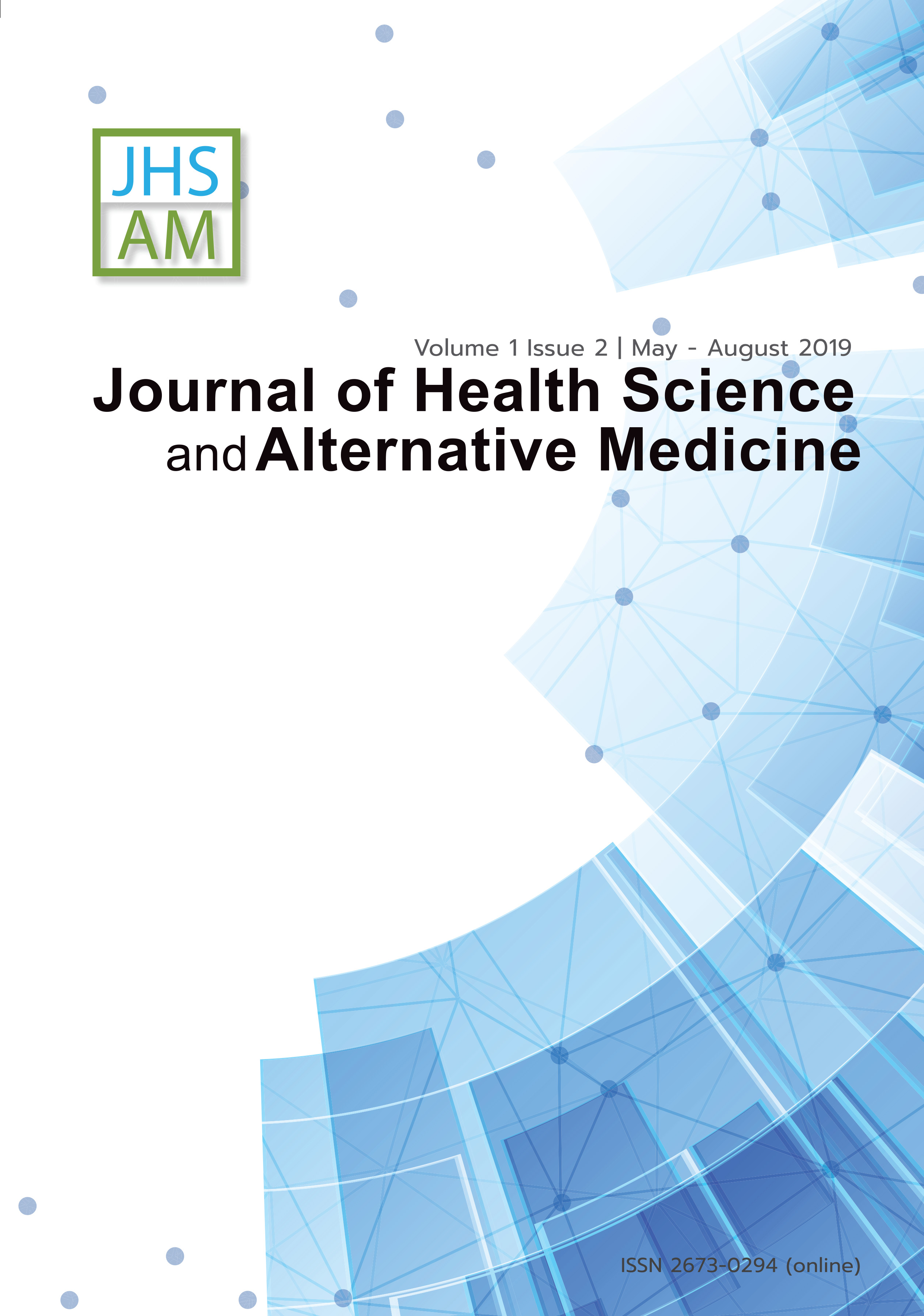Emerging global health challenges and integrated health models
Main Article Content
Abstract
Despite the achievements of modern biomedicine and public health in reducing the disease incidence and improving human well-being globally, emerging infectious diseases, and more recently, emerging chronic and degenerative diseases are reversing these gains. New models and intervention approaches are needed that go beyond those of conventional biomedical and public health thinking and intervention approaches typically narrowly framed on the basis of reductionist models of health. This paper reviews the application of the ecological perspective in public health and associated systems ecological-oriented frameworks for addressing these emerging disease crises. Their utility as a means of integrative research and interventions that combine biomedical, social and environmental dimensions of health is increasingly being demonstrated. The social-ecological systems framework, which only relatively recently has begun to be applied in health science and practice, is particularly promising.
Article Details
JHSAM publishes all articles in full open access, meaning unlimited use and reuse of articles with appropriate credit to the authors.
All our articles are published under a Creative Commons "CC-BY-NC-ND 4.0". License which permits use, distribution and reproduction in any medium,
provided that the original work is properly cited and is used for noncommercial purposes.
References
[2] Kosoy, M., & Kosoy, R. (2017). Complexity and biosemiotics in evolutionary ecology of zoonotic infectious agents. Evolutionary applications, 11(4), 394–403. doi:10.1111/eva.12503
[3] IOM (Institute of Medicine). 2006. Ending the War Metaphor: The Changing Agenda for Unraveling the Host-Microbe Relationship. National Academies Press, Washington DC.
[4] Smolinski, M.S., Hamburg, M.A., Lederberg, J., Institute of Medicine (U.S.) (Eds.), 2003. Microbial threats to health: emergence, detection, and response. National Academies Press, Washington, DC.
[5] McNeill, 1976. Plagues and peoples. Anchor Press, New York.
[6] Lederberg, J. 2003. Infectious History. https://www.sciencemag.org/cgi/content/full/288/5464/287
[7] McLeroy, K.R., D. Bibeau, A. Steckler, K. Glanz, An ecological perspective on health promotion programs, Health Educ. Q. 15 (1988) 351–377.
[8] IOM (Institute of Medicine). 2001. Health and Behavior: The Interplay of Biological, Behavioral, and Societal Influences. National Academy Press, Washington, DC https://www.ncbi.nlm.nih.gov/books/NBK43738/
[9] Odum, E.P., and G.W. Barrett. 2005. Fundamentals of ecology. Thomson Brooks/Cole, Belmont, California.
[10] Odum EP. The Emergence of Ecology as a New Integrative Discipline. Science (1977) 195:1289–1293. doi:10.1126/science.195.4284.1289
[11] B. A. Wilcox and D.J. Gubler. 2005. Disease ecology and the global emergence of zoonotic pathogens. Environmental Health & Preventive Medicine, Vol. 10:263-272.
[12] IOM (Institute of Medicine). 2008. Vector-borne diseases: understanding the environmental, human health, and ecological connections: workshop summary. National Academies Press, Washington, D.C.
[13] Richter, C.H., Xu J., Wilcox B.A. Opportunities and challenges of the ecosystem approach. Futures (2015) 67:40–51. doi:10.1016/j.futures.2014.12.002
[14] B. A. Wilcox and R. R. Colwell. 2005. Emerging and re-emerging infectious diseases: biocomplexity as an interdisciplinary paradigm. EcoHealth 2:244-257.
[15] Holling CS (2001) Understanding the complexity of economic, ecological, and social systems. Ecosystems 4:390–405
[16] Rychetnik L, Hawe P, Waters E, et al. 2004. A glossary for evidence based public health. Journal of Epidemiology & Community Health 2004;58:538-545.
[17] Wilcox, B. A., Alonso, A. A., De Paula, N., Siriaroonrat, B. and Echaubard, P. (2019). One Health employing social-ecological systems theory: lessons from the Greater Mekong Sub-region. Frontiers in Public Health, 7, 85.
[18] McLaren L, Hawe P Ecological perspectives in health research Journal of Epidemiology & Community Health 2005;59:6-14.
[19] Bircher, J., Kuruvilla, S., 2014. Defining health by addressing individual, social, and environmental determinants: new opportunities for health care and public health. J. Public Health Policy 35, 363–386. doi:10.1057/jphp.2014.19
[20] WHO, 2014. Global Status Report on Alcohol and Health, Geneva.
[21] Richter, C.H., Xu J., Wilcox B.A. Opportunities and challenges of the ecosystem approach. Futures (2015) 67:40–51. doi:10.1016/j.futures.2014.12.002
[22] Panuwet, P., Siriwong, W., Prapamontol, T., Ryan, P.B., Fiedler, N., Robson, M.G., Barr, D.B., 2012. Agricultural pesticide management in Thailand: status and popula- tion health risk. Environ. Sci. Pol. 17, 72–81. https://dx.doi.org/10.1016/j.envsci. 2011.12.005.
[23] Martínez Steele, E., Baraldi,, L.G., Louzada, M. L., et al. Ultra-processed foods and added sugars in the US diet: evidence from a nationally representative cross-sectional study. BMJ Open 2016;6: e009892. doi:10.1136/ bmjopen-2015-009892
[24] Bourdieu, P. (1985). The social space and the genesis of groups. Information (International Social Science Council), 24(2), 195–220. https://doi.org/10.1177/053901885024002001
[25] Berkes, F. & H. Ross (2013) Community Resilience: Toward an Integrated Approach, Society & Natural Resources, 26:1, 5-20, DOI: 10.1080/08941920.2012.736605
[26] Berkes, F., 1999. Sacred Ecology: Traditional Ecological Knowledge and Resource Management. Taylor & Francis, UK.
[27] Patwardhan B, Tillu G. Universal Health Coverage and AYUSH systems. J Ayurveda Integr Med. 2018 Jan-Mar;9(1):1-2. doi: 10.1016/j.jaim.2018.03.001. PubMed PMID: 29606254; PubMed Central PMCID: PMC5884080.
[28] Kones, R., & Rumana, U. (2017). Cardiometabolic diseases of civilization: history and maturation of an evolving global threat. An update and call to action. Annals of medicine, 49 3, 260-274.
[29] Pontzer, H., Wood, B. M., and Raichlen, D. A. ( 2018) Hunter‐gatherers as models in public health. Obesity Reviews, 19: 24– 35. https://doi.org/10.1111/obr.12785.
[30] Martínez Steele, E., Baraldi,, L.G., Louzada, M. L., et al. Ultra-processed foods and added sugars in the US diet: evidence from a nationally representative cross-sectional study. BMJ Open 2016;6: e009892. doi:10.1136/ bmjopen-2015-009892
[31] Heindel et al. Parma consensus statement on metabolic disruptors. Environmental Health (2015) 14:54 DOI 10.1186/s12940-015-0042-7
[32] Provenza, F.D., S.L. Kronberg, and P. Gregorini. 2019. Is Grassfed Meat and Dairy Better for Human and Environmental Health? Frontiers in Nutrition 19;6:26. doi: 10.3389/fnut.2019.00026.
[33] WHO (World Health Organization). 1986. The Ottawa Charter for Health Promotion.
[34] Rychetnik L, Hawe P, Waters E, et al. 2004. A glossary for evidence based public health. Journal of Epidemiology & Community Health 2004;58:538-545.
[35] Detels R, Breslow. Current scope and concerns in public health. In: Detels R, McEwen J, Beaglehole R, et al, eds. Oxford textbook of public health. Vol 1. Oxford: Oxford University Press, 2002.
[36] Beaglehold, R. and R. Bonita. 2010. What is Global Health. Global Health Action 2010, 3: 5142 - DOI: 10.3402/gha.v3i0.5142


